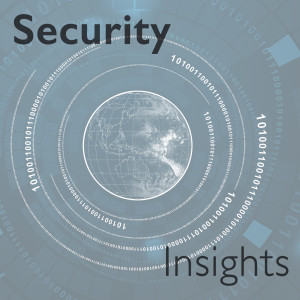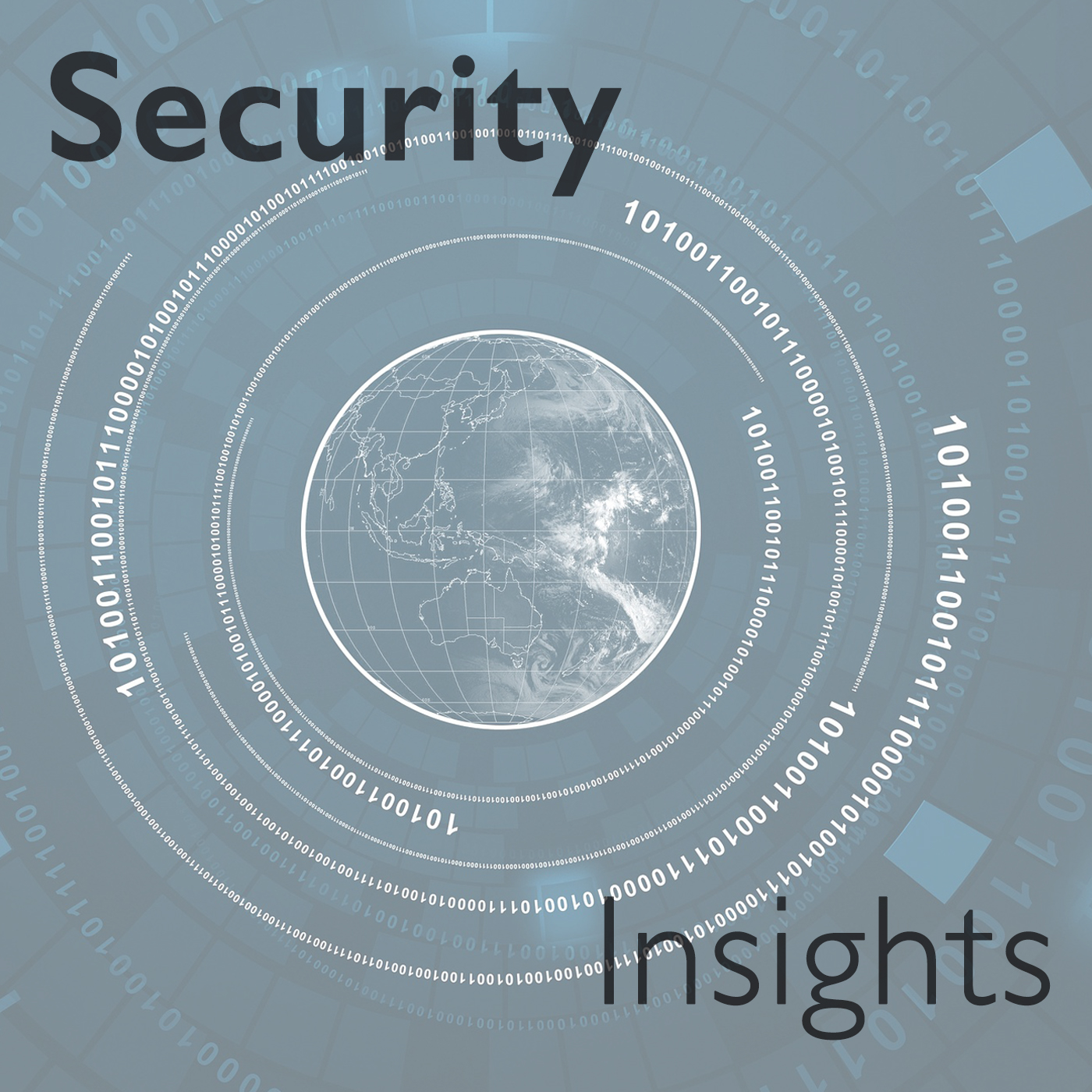Episodes

Thursday Nov 21, 2024
Cyber stress: are we burning out?
Thursday Nov 21, 2024
Thursday Nov 21, 2024
Is stress unavoidable, if you work in cyber?
And does workplace stress in the industry threaten security?
Stress and burnout among cyber teams are now a real worry for CISOs. And our guest for this episode argues that they should be a concern for boards too.
Stressed-out operators underperform and make mistakes. Burned out staff are more likely to leave, forcing firms to spend more on hiring and training replacements.
So how should employers spot the signs of stress? And what can we do as individuals to avoid burn out?
Our guest is Katie Maycock, of GYST Wellbeing.

Thursday Nov 07, 2024
Insights Interview: Geopolitics and cyber threats, with the ISF's Steve Durbin
Thursday Nov 07, 2024
Thursday Nov 07, 2024
Geopolitics is increasingly influencing cybersecurity.
The growth of online espionage, the potential for attacks by state actors, and governments turning a blind eye to cybercrime are all increasing risk.
At the same time, our growing dependency on connectivity, in government, in critical infrastructure and for day to day business, makes cyberspace an attractive target.
But it's not always been this way. In the early days of information and IT security, nation state threats were rare.
But, as Steve Durbin, CEO of the Information Security Forum points out, a lot has changed over the last few decades, and especially in the last few years.
In this Insights Interview editor Stephen Pritchard asks whether we are now more at risk than ever, if the current level of cyber threats could spill over into a more overt conflict and whether organisations have the resources to operate in a more dangerous world.

Thursday Oct 24, 2024
Deepfakes: uncovering the security risks
Thursday Oct 24, 2024
Thursday Oct 24, 2024
There's a lot being said (and written) about deepfakes.
And there is no doubt that they can now be very convincing, to the point where they can deceive the human eye.
But are deepfakes just a bit of fun, or do they pose real security risks? Do the dangers lie in manipulating public opinion through fake news, or can deepfakes be used to breach security systems.
Our guest, Dr Andrew Newell, academic researcher and chief scientific officer at iProov, argues that both are happening. Security teams need to take steps to block deepfakes from compromising identity systems, but we all need to guard against their wider influence.
Interview by Stephen Pritchard

Friday Oct 11, 2024
SaaS and security: shared responsibility, or hidden risks?
Friday Oct 11, 2024
Friday Oct 11, 2024
Software as a service, or SaaS, has been a huge success. There are now some 30 thousand SaaS applications on the market worldwide. These cover everything from niche requirements to running entire businesses.
The SaaS revolution has certainly brought benefits to businesses.
But are SaaS applications secure and robust enough? Supporters of SaaS argue that their applications are actually safer and more resilient than locally-run IT.
However, Cloud vendors, including SaaS companies, rely on the shared responsibility model. In simple terms, they look after the infrastructure, but the customer is responsible for their data.
This can leave organisations with real problems, if their data is inaccessible, or even deleted.
This could be down to human error, malicious actions, such as a ransomware attack, or even a SaaS provider failure.
Our guest today is Simon Taylor, Founder and CEO of HYCU. He believes that SaaS users need to take more control of their data, even when it's in a SaaS application.

Thursday Sep 26, 2024
Investing in cyber: should we follow the money?
Thursday Sep 26, 2024
Thursday Sep 26, 2024
Europe's cybersecurity industry is worth some $50bn and is growing at 10% a year.
It's also pretty fragmented – at least when it comes to vendors. Europe -- even more so than the US -- is now ready for market consolidation.
Some of that is being driven by acquisitions by the large technology firms, as they look to broaden their cybersecurity offerings.
But firms, and their investors, are looking for scale.
And CISOs are looking for simplicity and greater security. Could vendor consolidation achieve this? And what is the role of cybersecurity "platforms" as the industry changes shape?
Our guest is Mark Smith, of advisory firm Houlihan Lokey.
Interview by Stephen Pritchard.

Thursday Sep 12, 2024
Cyber escape rooms - and experiential learning
Thursday Sep 12, 2024
Thursday Sep 12, 2024
Conventional security training leaves a lot to be desired.
So what can CISOs do, to deliver training and security awareness in a way that is effective, and engaging?
Over the last few episodes we've discussed both the psychology, and human factors, around cybersecurity. To finish the series, in this programme we will look at experiential learning, or learning by doing.
Our guest is Amy Stokes-Waters. She delivers exactly that, by running escape rooms for organisations who want to improve security awareness, but want to move away from slide-heavy courses, and checkbox compliance. She's also written a paper on experiential learning in cybersecurity.
But does it work? She discusses cyber escape rooms, learning theory, and the pros and cons of measurement with editor Stephen Pritchard.

Friday Aug 30, 2024
Human Risk Management: tackling cybersecurity's weak spot
Friday Aug 30, 2024
Friday Aug 30, 2024
How do we manage the risks posed by human behaviour?
In this, the second of our short series exploring the links between human behaviour and security, we look at the emerging field of human risk management.
The statistics are quite frightening: 90 per cent of security breaches involve human error or social engineering.
But how do we, at a business level, categorise those risks? If we don’t understand the risks, we can’t reduce them.
A better understanding of where the risks are – and which behaviours are risky – makes it easier to design counter measures, such as training.
Our guests this week are Lev Lesokhin and Charlotte Jupp, of OutThink – an firm that’s pioneering human risk management.
We discuss what human risk management involves, and how security teams can make use of it, without crossing privacy boundaries.

Thursday Aug 15, 2024
Mind games: the psychology of cybersecurity
Thursday Aug 15, 2024
Thursday Aug 15, 2024
How important is human behaviour in cybersecurity? How well do we know our people, and do we understand the risks posed by individuals' actions?
Research suggests that the overwhelming majority of cyber breaches start with human error or poor practice. But despite investments in security training and security awareness, we still make mistakes.
Over the next three episodes, we will examine some of the human factors around cybersecurity, including human risk management, and how we change behaviour.
We'll start the series by looking at the psychology of cybersecurity, as well as how to measure change.
Our guest is Dr Thea Mannix, a neuroscientist and head of research at Praxis Security Labs

Thursday Aug 01, 2024
AI: chatbots, cut and paste, and data leaks
Thursday Aug 01, 2024
Thursday Aug 01, 2024
Our guest for this episode is Tim Freestone, of Kiteworks. He’s a long-standing expert in data protection and data privacy. And he's been following the growth of AI, and what it means for data privacy, security and confidentiality.
Even data specialists have been surprised by the rapid take up of generative AI and its benefits. But do we have the measure in place to guard against the potential security risks it brings?
It is not just malicious hackers who make AI tools such as chatbots a risk. Even something as simple as pasting information into a generative AI tool can cause problems. And he argues that we need to apply security's zero trust approach to AI too.
Interview by Stephen Pritchard

Friday Jul 19, 2024
IT, OT, and CNI: a hidden threat?
Friday Jul 19, 2024
Friday Jul 19, 2024
Any advanced economy relies on the smooth running of its infrastucture.
And whether it’s transport, logistics, healthcare, the banking system, manufacturing – even food production – industrial and operational systems are what keeps it all running.
Those systems are now being targeted by malicious actors. Both state-sponsored and criminal groups are looking closely at operational technology and industrial systems.
Recent research suggests that many, if not most, of the groups attacking critical national infrastructure are linked to national intelligence agencies. And that raises some difficult questions about how both businesses, and their governments, should respond.
Our guest is Mark Magpie Graham, technical director for threat intelligence at Dragos, who carried out the research.

